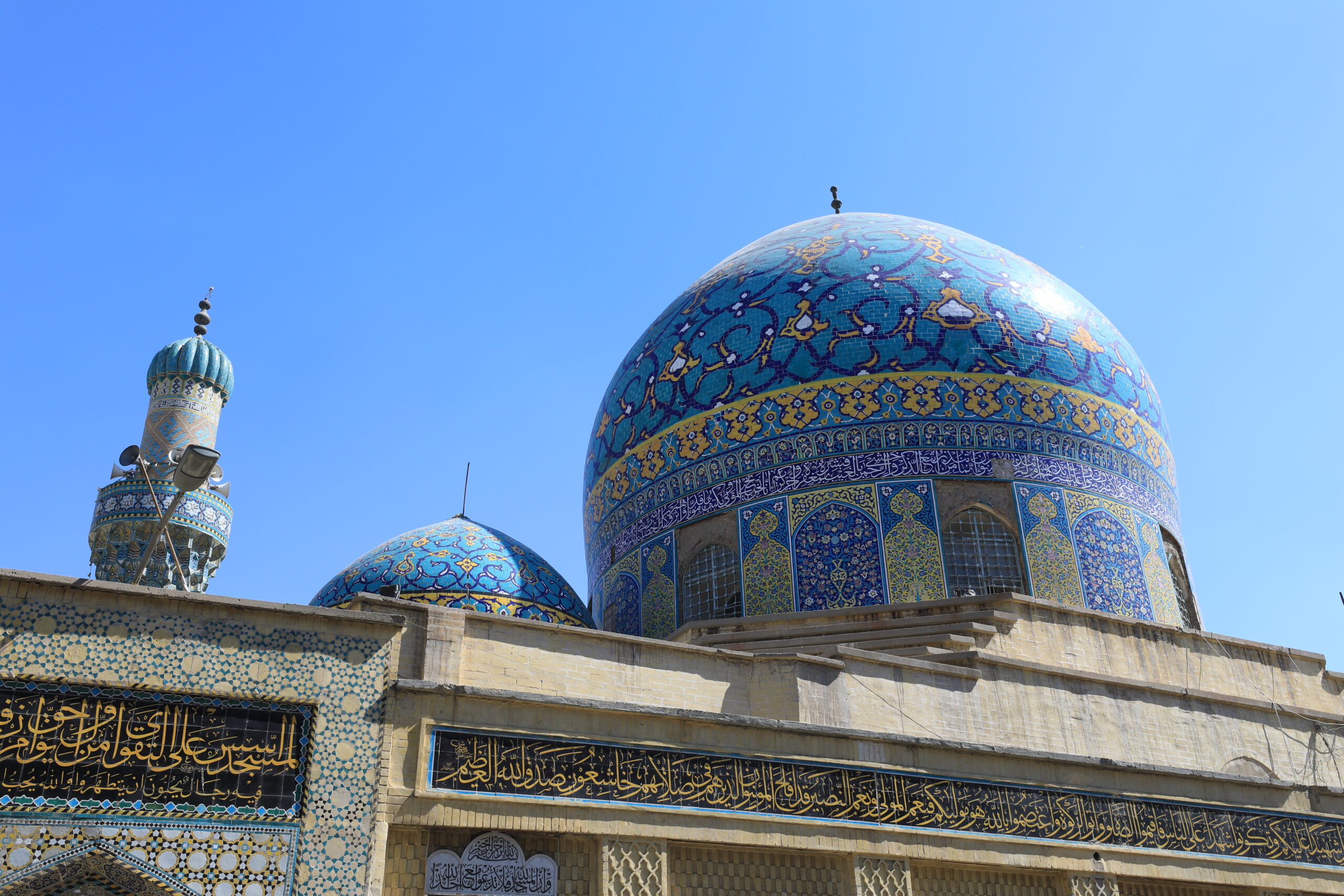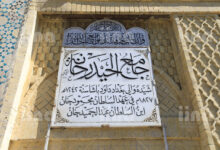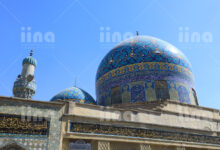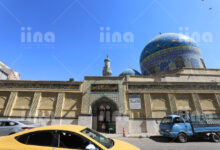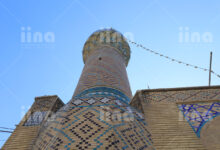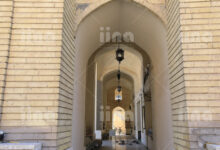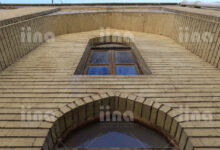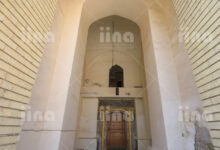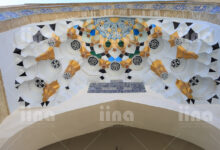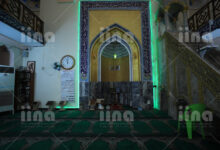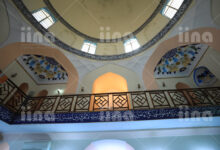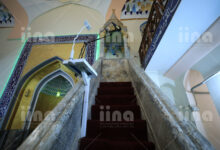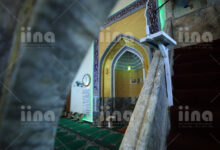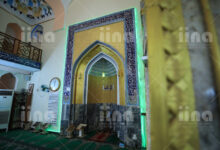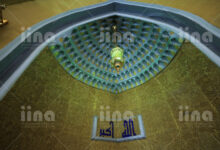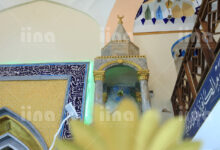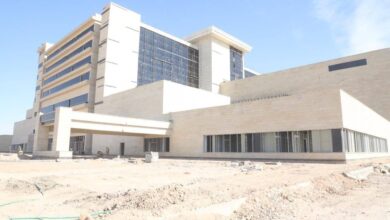The Haydarkhana mosque, constructed in 1826 under the supervision of Daoud, the Pasha of Baghdad, and subsequently refurbished in 1893 and 1920, is located within Baghdad’s al Rusafah neighbourhood, on al-Rasheed street. Despite its modest size, it is highly regarded for its exemplary Ottoman architectural style.
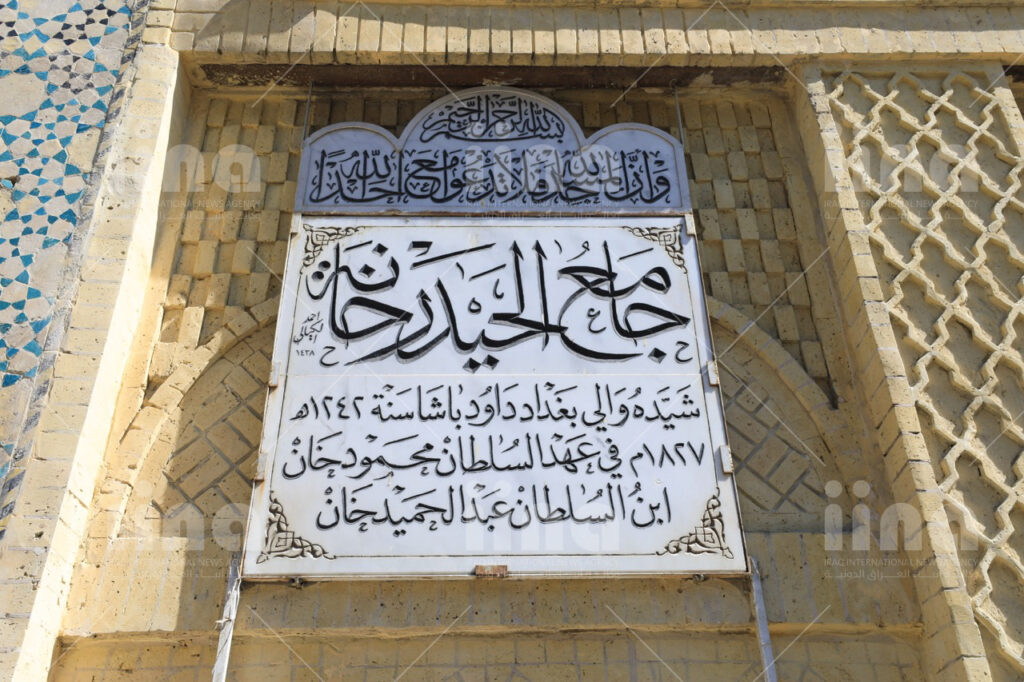
The primary structure, crafted from brick, embraces a courtyard enclosed on three sides by walls, while the fourth side, constituting the qibla wall (the wall that faces Mecca), looks out onto the street. The street-facing qibla wall is embellished with ornate pointed arches and intricate calligraphy in kashi blue and gold tiles. An imposing iwan gate marks the principal entrance to the mosque.
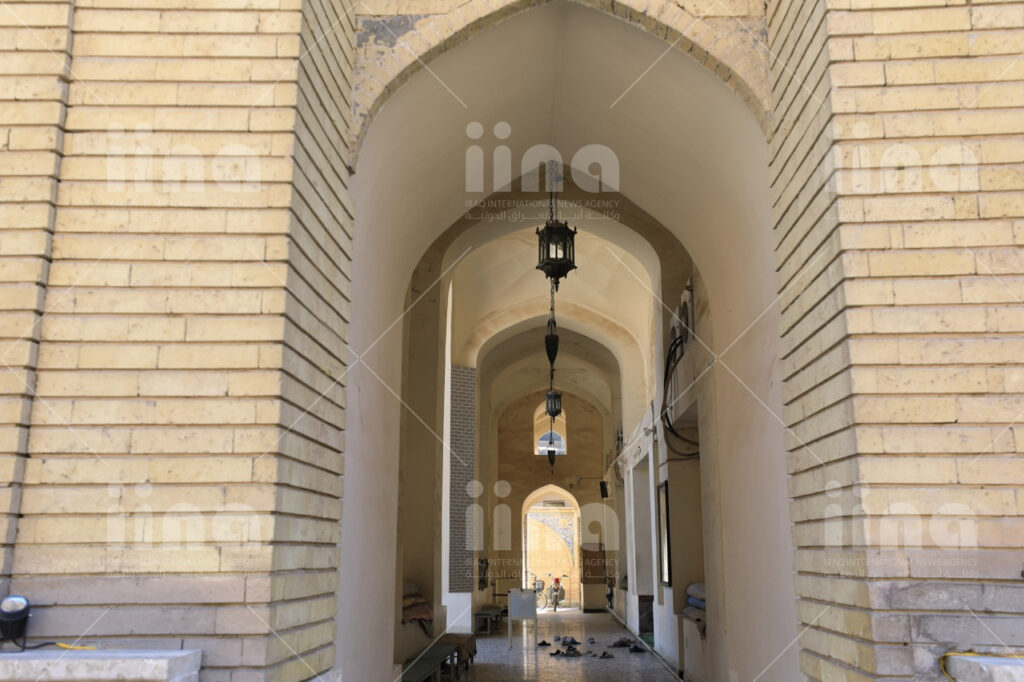
Within the courtyard, the primary building features a symmetrical rectangular layout, divided into three sections: the masala or prayer hall, a portico, and a minaret, each adorned with striking kashi blue tiles. The central arch, serving as the main entry point is decorated with muquarnas and the founder’s inscriptions are showcased on a smaller pointed arch within the large iwan gate.
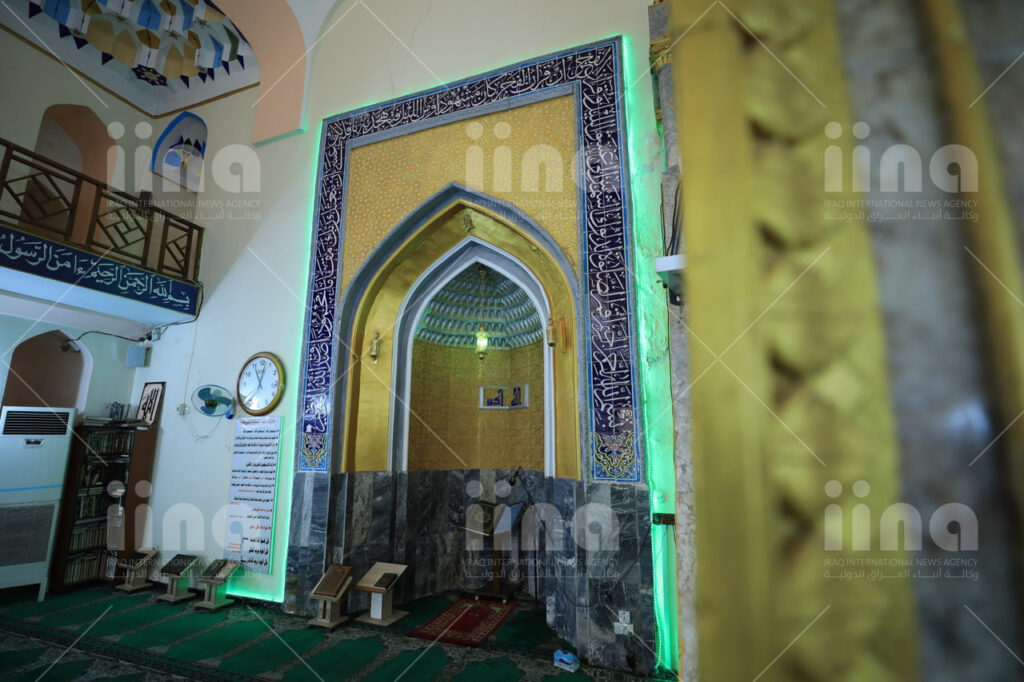
Access to the prayer hall is facilitated through a portico, accessible through three small doors on each side, while another door provides access to the portico. These entrances are topped with windows and enclosed by tall narrow arches. The portico is supported by four robust piers and crowned with five domes. Hazarbaf brickwork motifs adorn the blind arches on the piers, contributing to the mosque’s impressive architectural charm.
Despite its compact scale, the Al Haydarkhana mosque stands as a testament to the architectural artistry of its time, captivating visitors with its harmonious proportions and intricate detailing.
- Published: 14th March, 2024
- Date Taken: 13th March, 2024
- Location: Baghdad
- Country: Iraq
- Editor: Justyna Wojtowicz
- Photographer: Firas Hamid Karim
- Category: Religion

